
Richard Troyanovich Meves (1839–1901) was a Lieutenant general in the Imperial Russian Army who fought in the Russo-Turkish War (1877–78).

Nikolai Aleksandrovich Tretyakov was a military engineer and general in the Imperial Russian Army, noted for his heroic role in the Siege of Port Arthur during the Russo-Japanese War.

Mikhail Ivanovich Zasulich was a general in the Imperial Russian Army, noted for his role as commander of the Russian 2nd Siberian Army Corps in the Battle of the Yalu River, of the Russo-Japanese War of 1904–1905.

Pavel Ivanovich Mishchenko was an Imperial Russian career military officer and statesman of the Imperial Russian Army.
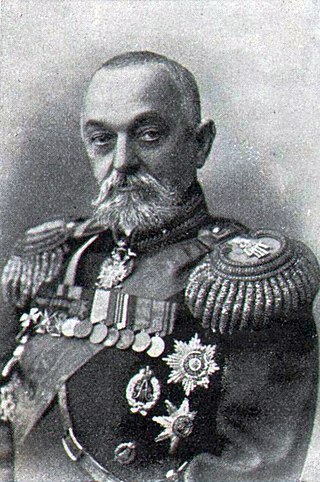
Mikhail Ivanovich Batyanov was a general in the Imperial Russian Army.
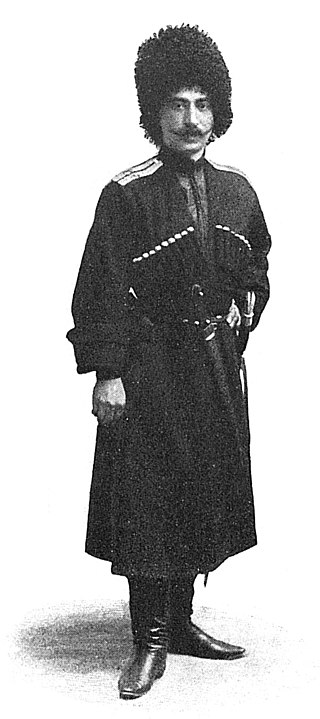
Feyzullah Mirza Qajar also Fazullah-Mirza Qajar - was a prince of Persia's Qajar dynasty and a decorated Imperial Russian and Azerbaijani military commander, holding the rank of Major-General. In the Russian imperial army, he was the commander of the 1st Caucasian Native Cavalry Division, and the commander of the Ganja garrison in the army of Azerbaijan Democratic Republic.
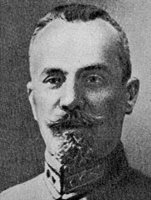
Vladimir Alexandrovich Olderogge was a Russian and Soviet military leader. He was commander of the Eastern Front of the Red Army.
Nikolai Ivanovich Protopopov was a Russian military leader. General from Infantry (1916). Hero of the First World War. Member of the Russian-Turkish war.

Vladimir Apollonovich Olokhov was a Russian military leader, hero of the First World War, general from infantry.

Georgy Nikolaevich Viranovsky was a Russian commander, participant in the Russo-Japanese War and World War I, Lieutenant General, and participant in the White Movement during the Civil War (1918-1920). He was Cavalier of the Order of St. George 3rd and 4th degree.

Iosif Ivanovich Mrozovsky was a Russian General of Artillery.
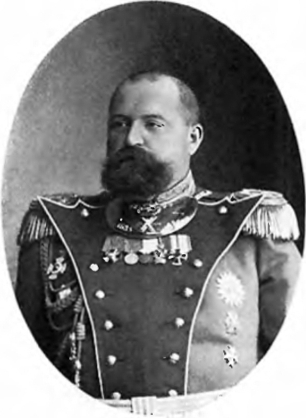
Nikolai Nikolayevich Ignatev (1872–1962) was a Russian major general, commander of the Preobrazhensky Regiment, hero of the First World War.

Vladimir Mikhailovich Bezobrazov was a Russian military leader from the Bezobrazov family, general from the cavalry, adjutant general. From 1915-1916 he was commander of the Guard.

Pavel Platonovich Potosky was a Russian military leader, hero of World War I and military historian.
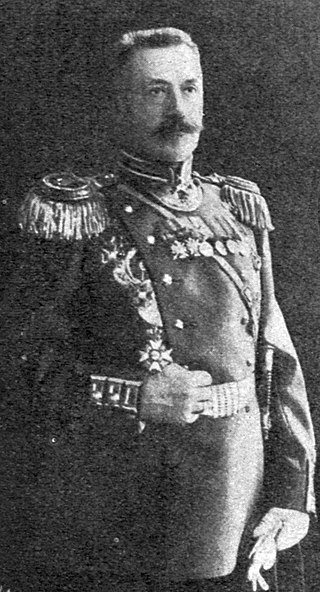
Alexey Ivanovich Cherepennikov - Russian major general, participant in the First World War. He served in the Red Army, repressed in 1937.
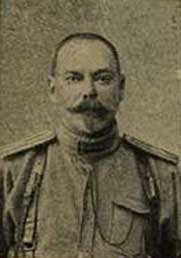
Adolph Ferdinandovich Pfingsten was an Imperial Russian Army officer.

Viktor Pavlovich Zykov was a lieutenant general, and a participant in the Russo-Turkish War (1877-78) and Russo-Japanese War.

Anatoly Nikolaevich Rosenshield von Paulin was a Russian military leader and Lieutenant General of the General Staff.

Vladimir Alekseyevich Alftan was a Russian military leader, lieutenant general of the Russian Imperial Army. Military orientalist, researcher of Korea.

Nikolai Mikhailovich Istomin was a Russian Lieutenant General who was known for being the commander of the 5th Caucasian Army Corps during World War I.



















